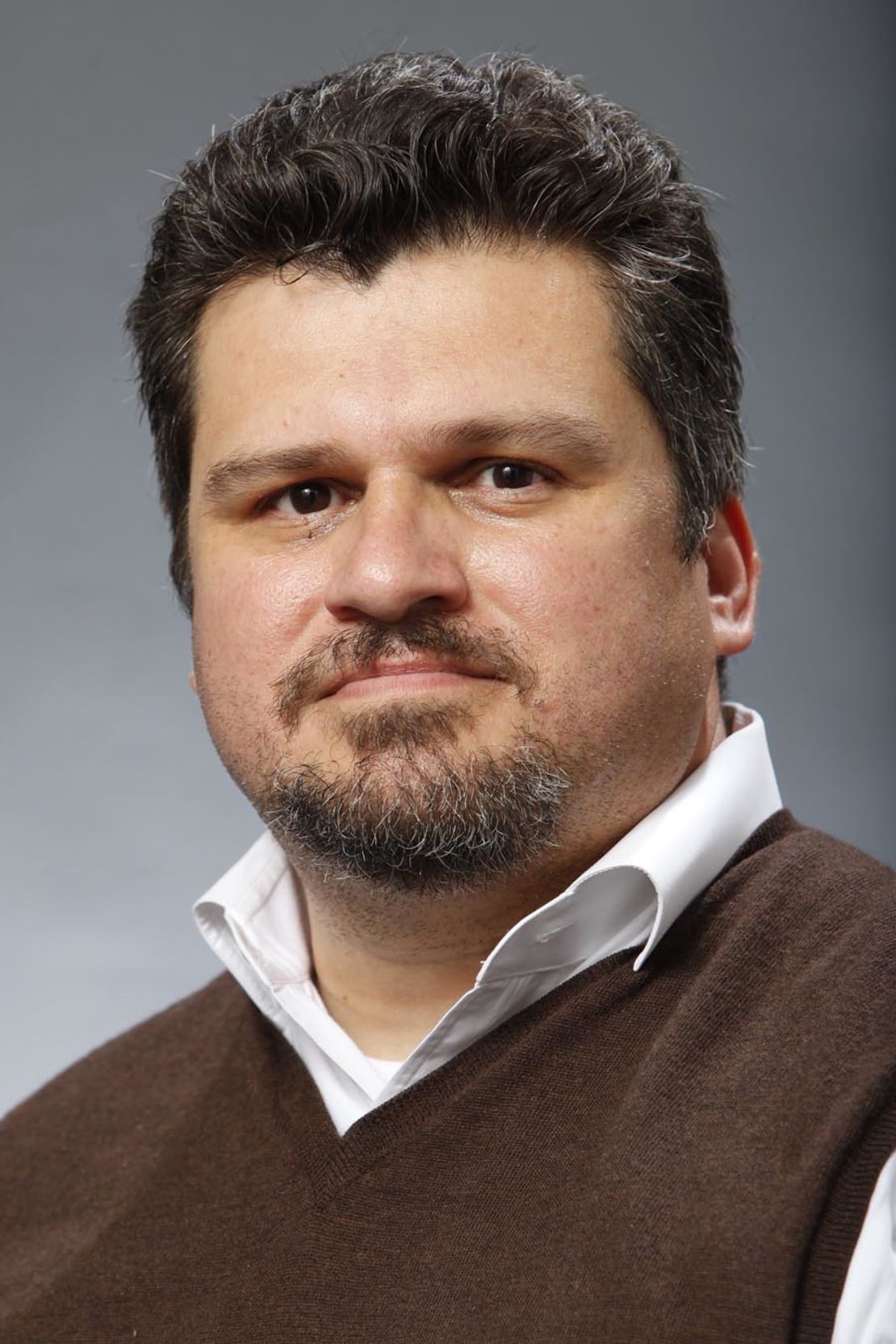Editor’s Note: Ruben Navarrette is a CNN contributor and a nationally syndicated columnist with the Washington Post Writers Group. Follow him on Twitter: @rubennavarrette
Story highlights
Ruben Navarrette: Bill Richardson crossed line by implying Ted Cruz not Hispanic
Navarrette: Hispanics hurt Hispanics by accusing one another of not being authentic
He says if you want to attack Cruz, call him out on politics, not his authenticity
Navarrette once played authenticity game, but he says he grew up
Oh no, he didn’t go there. Even in a political climate where it sometimes appears that anything goes, Bill Richardson crossed the line.
When the former New Mexico governor recently attacked Republican Sen. Ted Cruz of Texas, for – in essence – not being Hispanic enough, or not being the right kind of Hispanic, Richardson went too far. Way too far.
During a web interview after an appearance on ABC News’ “This Week,” the Democrat was asked about Cruz and said this:

“I’m not a fan. I know (Cruz is) sort of the Republican latest flavor. He’s articulate. He seems to be charismatic, but I don’t like his politics. I think he introduces a measure of incivility in the political process. Insulting people is not the way to go.”
Then, Richardson insulted Cruz. He was asked if he thought the senator represents most Hispanics. That’s a dumb question. Cruz has never claimed to represent “most Hispanics.” Besides, can you imagine someone asking if an Anglo politician represents most Anglos?
Yet, Richardson played along.
“No, no,” he said. “He’s anti-immigration. Almost every Hispanic in the country wants to see immigration reform. No, I don’t think he should be defined as a Hispanic. He’s a politician from Texas. A conservative state.”
Since leaving government, Richardson obviously has time on his hands and so he has volunteered to assume the burden of sorting through 52 million Hispanics in the United States and deciding which of us are authentic and which aren’t. You have to respect the initiative.
For the record, Cruz doesn’t think that illegal immigrants should get a path to citizenship, calling it “inconsistent with the rule of law and is profoundly unfair to the millions of legal immigrants who have followed the rules and waited in line for years, and sometimes decades, to come here legally.”
I disagree with most of what Cruz has said about immigration. But I wouldn’t say that he is “anti-immigration.” That’s crazy. He is the son of an immigrant.
Cruz’ father, Rafael, who the senator says has been his hero his entire life, left Cuba in 1957 at age 18. The elder Cruz came to the United States not speaking English, with $100 to his name and washed dishes for 50 cents an hour.
I once asked Cruz how he would solve the immigration problem. “No. 1: We need to get serious about securing the border, about stopping illegal immigration, particularly in a post-9/11 world,” he said. “But No. 2, we also need to remain a nation that doesn’t just welcome but that celebrates legal immigrants who come here seeking to pursue the American dream.”
That doesn’t sound “anti-immigration” to me.
By the way, Richardson’s father, William Blaine Richardson, Jr., was raised in Boston and worked as an executive at American Citibank. He later worked for the bank in Mexico City, where he met and married Maria Luisa Lopez-Collada Marquez, Richardson’s mother. Bill was born in Southern California.
By the time Richardson made his way to New Mexico and into politics, he wasn’t exactly greeted with mariachis and margaritas by the politicos whose families had, in some cases, lived in the Land of Enchantment for 300 years. Richardson speaks excellent Spanish, but he still had to convince native New Mexicans that he was authentically Mexican-American. He goes by “Bill” not “Guillermo,” and “Richardson” isn’t a typical Hispanic surname.
So Richardson should know better than to question someone else’s authenticity.
In his eagerness to score a point for Team Blue by sniping at a rising star in the GOP, the Democrat wandered into territory that should be off-limits.
For Hispanics, this is our soft spot. We pull each other down, crabs in a bucket. And our modus operandi hasn’t evolved in 500 years: We always make it personal. We can’t just disagree; we discredit. And we do it by accusing each other of being less authentic than we are. The whole subject is taboo.
On Monday, during another interview, Richardson said his comments were misinterpreted and that what he meant to say is simply that Cruz “shouldn’t be defined just as a Hispanic” because there is more to him than that.
If that’s where he meant to go, he took the long way there.
If Hispanics want to attack Ted Cruz, fine. Have at it. But attack him for his policies, his politics and his public statements. Not his ethnic authenticity.
As for the territory that is off-limits, I know it well. Memory carries me back to my freshman year in college where, 28 years ago, I indulged in an unfortunate ritual for Hispanic students. It might as well be called: “I’m a real Hispanic, you’re a coconut.” Brown on the outside, but white on the inside.
Insecure about my ethnic identity, in part because I attended a predominantly white university, I lashed out at fellow Hispanic students. If they had conservative views, I would say they “didn’t identify” and accuse them of not being Hispanic enough. Ironically, some of the people I attacked probably spoke Spanish better than I did. The whole exercise was childish, rude and wrong. And by senior year, when I began to challenge the liberal orthodoxy that many Hispanics worship, I got a taste of my own medicine.
I don’t play that game anymore. I grew up. In politics, not everyone has.
Follow us on Twitter @CNNOpinion
Join us on Facebook/CNNOpinion
The opinions expressed in this commentary are solely those of Ruben Navarrette, Jr.



